The last major rap release of 2006, Nas‘ Hip Hop Is Dead sought to make a powerful statement. “Everybody sound the same, commercialize the game/Reminiscing when it wasn’t all business,” he rapped on the will.i.am-assisted title track.
The album cover even depicted the Queensbridge MC tossing a black rose into a grave as he mourned the purported death of the art form he helped to shape and elevate.
Arriving in an era increasingly dominated by Southern rappers such as Lil Wayne, T.I. and Jeezy (who had yet to drop the “Young” from his name) — with Crunk and Snap hits flooding the airwaves — many took it as a slight against Hip Hop’s “third coast.”
In fact, Ludacris, Outkast’s Big Boi and Jeezy were among the many Southerners who took exception to the title, with the latter telling the Philadelphia radio station 100.3 The Beat, “I don’t think Hip Hop is dead at all. It’s just a new day and time, it’s a new story, it’s a new movement. I’ma respect his craft; he ain’t gon’ respect mine?”
As it turns out, Nas’ critique was actually aimed at those closer to home. In the latest episode of his and Miss Info’s Spotify podcast The Bridge: 50 Years of Hip Hop — featuring Jeezy as the special guest — the rap icon revealed Hip Hop Is Dead was largely directed at his New York rap peers.
“I didn’t think that certain people would think I’m talking about them,” he admitted at the 15:30-minute mark. “Oh nah, I’m talking about mainly New York! Mainly New York. I’m talking to everybody, but I didn’t explain it thorough enough.”
While Nas didn’t name names, New York rap in the mid 2000s was defined by the likes of 50 Cent, Fat Joe, Busta Rhymes, Fabolous, Lloyd Banks, Tony Yayo and Dipset’s Cam’ron, Jim Jones and Juelz Santana, all of whom helped usher in a newer, modern era in the Mecca of Hip Hop.
Jeezy also reflected on the Hip Hop Is Dead debate during the episode, recalling both his disappointment and defiance when Nas’ album dropped in the midst of his own rise to rap stardom.
“When he did Hip Hop [Is] Dead, I thought he was talking about us,” he said. “I wanted to be the front guy and say what I said. At the time, you gotta think, I’m just getting on. I’m just seeing my first legitimate money. I’m just getting my shows going. And then you got The Don in New York saying ‘Hip Hop is dead’!”
Jeezy’s outspokenness only earned him admiration from Nas, who said, “It was big of him to say something; I respected that.” The pair later hashed things out over the phone and have since become good friends, famously joining forces on the 2008 anthem “My President.”
In truth, Hip Hop Is Dead was never intended to be a critique of Southern rap. “You’d be an idiot to think I’m talking about how the South killed Hip Hop,” Nas told Pitchfork in 2006. Let’s not forget he also rallied the Dirty South — along with rap’s other major regions — on “Hip Hop Is Dead.”
But with so many differing statements from the Queensbridge legend about what exactly “killed” Hip Hop — commercialism? Lack of ownership in the industry? Young fans’ inability to quote Big Daddy Kane? Dem Franchize Boyz’s “White Tee”? — the true meaning behind the title always felt muddled.
On the album’s 10th anniversary in 2016, Nas admitted in hindsight he “missed the mark” with Hip Hop Is Dead.
“In retrospect, I missed the mark by miles,” he said. “I didn’t want to pick people apart. It felt like it was for a younger artist to do. I thought the title was enough; to say it’s dead, it was to say, ‘I don’t know where to begin, I don’t know where to start. But at least I’ll name it this and we’ll see where it goes from there.'”
Nevertheless, the album was still a commercial success, topping the Billboard 200 with over 350,000 first-week sales as it inches its way to platinum certification. Revisit Hip Hop Is Dead below.
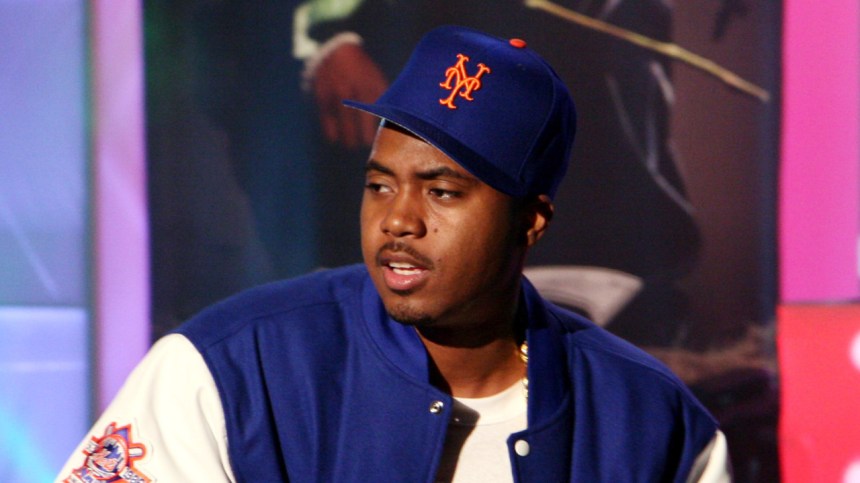


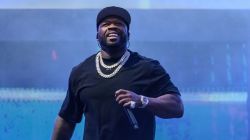

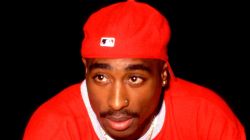
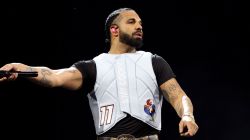


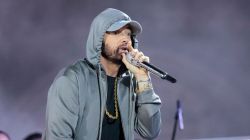
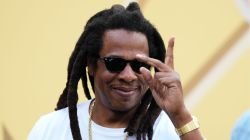
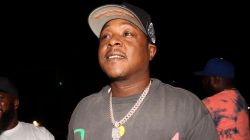


Actually he didn’t miss…the album was good. I didn’t like the lead single but appreciated it more after Nas broke down the why he used the beat(he recycled the”Thieves Theme” beat to represent how hiphop is also being recycled) I also respect Jeezy eventhough he took the questioning from that interview out of context…shit got kinda tense during that interview as I remember. I do think Nas dissed him on “Money Over Bullshit” and it seems he made a conscious effort to body Jeezy on that “My President is Black” remix….d0pe that hashed the shit out though
He also dissed Jim Jones on “MOB” with “Put a barrel in a capo mouth, til his scalp come out, you a kid, you don’t live what you rap about”.
Great line
I think the reason being as to why there isn’t a single clear answer on hip hop being “dead” is because there’s a lot of different variables that can be looked at and dissected. You can’t put all the blame on a certain region or blame it all on commercialism, they all play a part in one way or another. Do I think a majority of hip hop is wack now? Yes. Do I think it’s dead? Not by a long shot. Hip hop is still one of the biggest topics of discussion with young and old generations and also one of the biggest selling genres of music. It just needs some fixing up and more moral guidance on how to be successful and not be another statistic.
I actually love that album.
Hip hop to me was about DJing,fun n wacky raps,story telling, lyrics, and dope ass background guy dancers,boom bap and concious rap. None of that was in any other place besides NY. It all died in the mainstream radio in the mid to late 90s once Biggie changed the rap game
“None of that was in any other place besides NY.” – no try again. see hip hop died because of this kind of attitude. rock and roll was able to reinvent itself by allowing new people and new sounds in Beatles, Hendrix, Zeppelin even funk like Sly Stone and Bob Marley reggae – all under the rock umbrella. Made everyone a lot of money back then. NYC clown asses just selfish and stupid rejected all the people who were inspired by the movement and basically killed it off. All the creative black people are down south now
The Hip-hop culture is dead. But rap is very much alive and crossed over to pop.
Now, every rapper sounds alike, even have similar names, 99.9% of the most popular artists have ZERO lyrical skills. Hip-Hop used to be about clever lyrical rhyme schemes, which requires a high level of intelligence. These rappers today are just rapping the basic “ABC…123…look at me.” Garbage!
No it wasn’t. It was aimed at popularization of southern style hiphop and Atlanta and all that sound. Now this clown is backtracking because we all can see that sound became dominant in hiphop and i haven’t checked Nas last couple albums but pretty sure he is rapping over some similar / trap beats these days and collabing with artists and producers doing that type of hiphop.
First of all do your research before assuming something. You sound like a bitch with hurt feelings. Oh and by the way I would be very ashamed of the fact that a ny emcee is flowing better on dirty south beats than y’all ever could lmao. Not that he did it much in his career. I only remember a remix of a Future song and 40 Side of off KD 2. Nas has his own sound and vision sorry to disappoint you little hater.